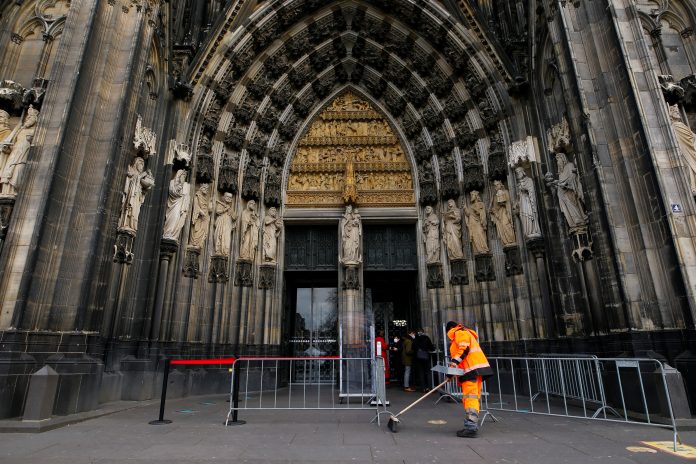More than 220,000 people left Catholic Church in Germany in 2020, according to official figures released on Wednesday.
The statistics issued by the German bishops’ conference on July 14 showed that 221,390 people exited the Catholic Church last year.
The figure was almost 19% lower than that of 2019, when a record 272,771 people departed. But it was higher than the 2018 figure of 216,078, reported CNA Deutsch, CNA’s German-language news partner.
In a July 14 statement, Bishop Georg Bätzing, president of the German bishops’ conference, said that while the Church had made strenuous efforts throughout the coronavirus pandemic, it was nevertheless experiencing “a profound shock.”
He said: “This is also reflected in the statistics of people leaving the Church, which I find painful for our community. Many have lost confidence and want to send a signal by leaving the Church.”
“We take this very seriously and must face this situation openly and honestly and give answers to the questions that are addressed to us.”
“This includes, first and foremost, a thorough examination of the cases of sexual abuse. And this includes the question of power and the separation of powers in the Church. I very much hope that the Synodal Way can make its contribution to building new trust.”
The “Synodal Way” is a multi-year process bringing together bishops and lay people to discuss four main topics: the way power is exercised in the Church; sexual morality; the priesthood; and the role of women.
The German bishops initially said that the process would end with a series of “binding” votes — raising concerns at the Vatican that the resolutions might challenge the Church’s teaching and discipline.
Bishops and theologians have expressed alarm at the process, which is expected to end in February 2022, but Bätzing and other German Church leaders have vigorously defended it.
The new statistics showed that there were 104,610 baptisms in 2020, compared to 159,043 in 2019.
There were 139,752 First Communions, significantly fewer than the 166,481 the year before.
There were 75,387 confirmations, a notable decrease from 123,253 in 2019.
Just over 11,000 Catholic weddings took place in 2020, a major drop from the 38,537 recorded the year before.
But Catholic burials increased from 233,937 in 2019 to 236,546 in 2020.

If an individual is registered as a Catholic in Germany, 8-9% of their income tax goes to the Church. The only way they can stop paying the tax is to make an official declaration renouncing their membership. They are no longer allowed to receive the sacraments or a Catholic burial.
Only 5.9% of Germany’s Catholics attended Mass last year, compared to 9.1% in 2019.
The number of priests listed has decreased by 418 to 12,565. In 2019, there were 12,983 priests working in Germany.
The number of parishes is also decreasing. In 2018, there were 10,045 parishes. In 2019, there were 9,936. In 2020, there were 9,858, or 78 fewer than the year before.
The figures showed that there are 22,193,347 Catholics in Germany, 26.7% of the total population of 83 million. In 2019, the proportion was 27.2%
Only 1,578 people formally joined the Catholic Church in 2020, 1,390 of whom were Protestants. The number of people rejoining the Church after officially departing was 4,358, fewer than the 5,339 in 2019.
Bishop Bätzing, who succeeded Cardinal Reinhard Marx as president of the German bishops’ conference in March 2020, said: “Despite the depressing figures in these statistics, I would like to expressly thank all those who are committed and live their faith in church and society, especially those who work full-time in pastoral care: Priests, deacons, pastoral and parish assistants.”
“I would also like to emphasize this in view of the statistics: I am very grateful for those who put themselves at the service of the Church in these turbulent times. Even in small numbers, the new priests and pastoral workers will provide an indispensable mission in a constantly changing world.”









